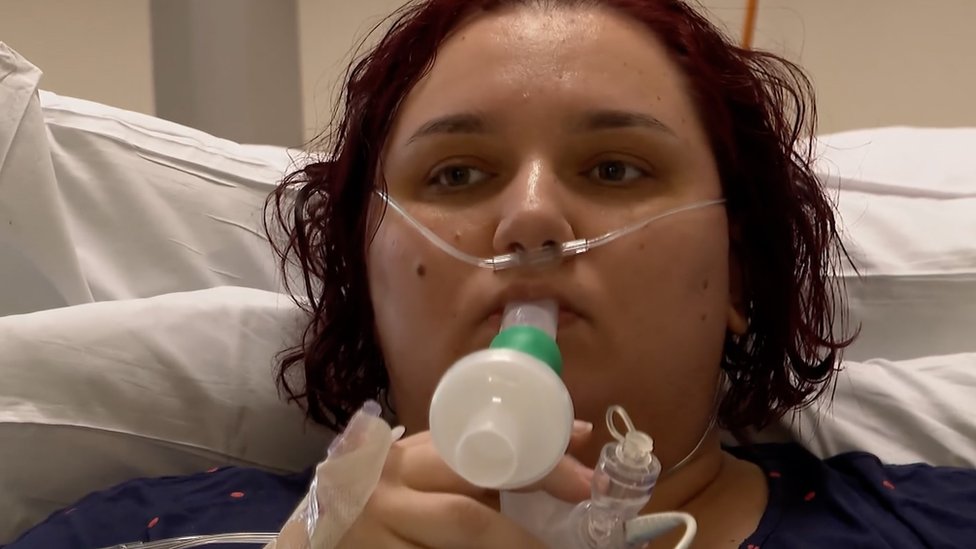Spursex
Alert Team
French government would have botched D-Day given their Covid vaccination record, Paris mayor says
Macron administration hits back that if Anne Hidalgo was in command of Normandy landings, 'the ships would never have left America'
By Henry Samuel Paris 11 January 2021 • 1:30pm

Emmanuel Macron's vaccination fiasco suggests he's no Churchill, says Paris mayor Anne Hidalgo Credit: Reuters
D-Day would have foundered if Emmanuel Macron’s French government was behind it given its Covid vaccination “failings”, Paris mayor Anne Hidalgo has claimed.
The comments sparked an angry row with the centrist Macron administration, which retorted on Monday that if Paris’ Socialist town hall had organised the Normandy landings then “the ships would never have left America”.
Mr Macron has come under intense criticism from opposition politicians and some experts over the sluggish launch of Covid vaccinations after only 516 people received jabs in the first week. Red tape and a lack of logistical foresight have been major sticking points.
The country is now speeding up, with the health ministry on Monday announcing that the 100,000-mark had now been surpassed. That, however, is still way behind the UK, where around two million people have had a first jab. Neighbouring Germany has vaccinated around 700,000 people.
In the light of such comparisons, Ms Hidalgo told Le Journal du Dimanche that Mr Macron was no Winston Churchill and that, “Given such failures, D-Day on June (6), 1944 would have failed.”
She echoed calls by local politicians to divest powers to French towns and regions in acquiring and distributing vaccines rather than enlisting the help of private consultants McKinsey.

Paris mayor Anne Hidalgo has taken aim at Emmanuel Macron's vaccination woes Credit: Chesnot/Getty Images Europe
Piqued, government spokesman Gabrial Attal countered that Ms Hidalgo’s reasoning was questionable given that “the French government wasn’t tasked with managing D-Day”. The feat of pulling off the largest amphibious assault in history befell Britain and America.
He then took aim at Paris town hall’s shambolic handling of the latest version of the capital’s delay-plagued Vélib’ bike rental scheme.
“If the Normandy landings had been managed as Anne Hidalgo managed the Vélib’, the ships would never have left America,” he added, pointing out that the capital’s electric rental scheme was also a hugely costly fiasco.
“(The mayor) has shown that when it comes to logistics, she is capable of turning gold into lead” despite the fact that there were “more civil servants working for Paris City Hall than the European Commission", he went on.
Ms Hidalgo on Sunday hinted that she may run for president in 2022, saying: “I will play my part to the full.”
The Socialists were left in tatters after Mr Macron’s surprise presidential and legislative triumph in 2017 and Ms Hidalgo is one of the country’s highest-profile remaining Left-wing figures after clinching a second term last year.
Her campaign received a boost after the initial Macron candidate pulled out over a sex tape scandal.
Macron administration hits back that if Anne Hidalgo was in command of Normandy landings, 'the ships would never have left America'
By Henry Samuel Paris 11 January 2021 • 1:30pm
Emmanuel Macron's vaccination fiasco suggests he's no Churchill, says Paris mayor Anne Hidalgo Credit: Reuters
D-Day would have foundered if Emmanuel Macron’s French government was behind it given its Covid vaccination “failings”, Paris mayor Anne Hidalgo has claimed.
The comments sparked an angry row with the centrist Macron administration, which retorted on Monday that if Paris’ Socialist town hall had organised the Normandy landings then “the ships would never have left America”.
Mr Macron has come under intense criticism from opposition politicians and some experts over the sluggish launch of Covid vaccinations after only 516 people received jabs in the first week. Red tape and a lack of logistical foresight have been major sticking points.
The country is now speeding up, with the health ministry on Monday announcing that the 100,000-mark had now been surpassed. That, however, is still way behind the UK, where around two million people have had a first jab. Neighbouring Germany has vaccinated around 700,000 people.
In the light of such comparisons, Ms Hidalgo told Le Journal du Dimanche that Mr Macron was no Winston Churchill and that, “Given such failures, D-Day on June (6), 1944 would have failed.”
She echoed calls by local politicians to divest powers to French towns and regions in acquiring and distributing vaccines rather than enlisting the help of private consultants McKinsey.
Paris mayor Anne Hidalgo has taken aim at Emmanuel Macron's vaccination woes Credit: Chesnot/Getty Images Europe
Piqued, government spokesman Gabrial Attal countered that Ms Hidalgo’s reasoning was questionable given that “the French government wasn’t tasked with managing D-Day”. The feat of pulling off the largest amphibious assault in history befell Britain and America.
He then took aim at Paris town hall’s shambolic handling of the latest version of the capital’s delay-plagued Vélib’ bike rental scheme.
“If the Normandy landings had been managed as Anne Hidalgo managed the Vélib’, the ships would never have left America,” he added, pointing out that the capital’s electric rental scheme was also a hugely costly fiasco.
“(The mayor) has shown that when it comes to logistics, she is capable of turning gold into lead” despite the fact that there were “more civil servants working for Paris City Hall than the European Commission", he went on.
Ms Hidalgo on Sunday hinted that she may run for president in 2022, saying: “I will play my part to the full.”
The Socialists were left in tatters after Mr Macron’s surprise presidential and legislative triumph in 2017 and Ms Hidalgo is one of the country’s highest-profile remaining Left-wing figures after clinching a second term last year.
Her campaign received a boost after the initial Macron candidate pulled out over a sex tape scandal.





